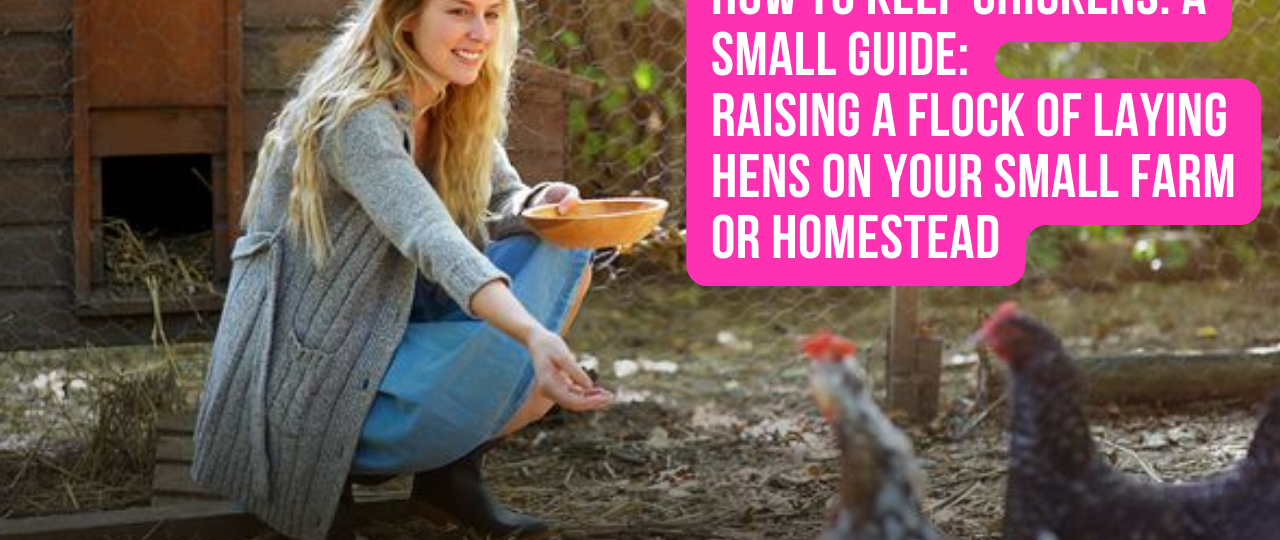Think you want to keep some chickens on your small farm or homestead? Maybe you're looking for laying hens only, or a combination of laying hens and birds for meat, but you're not sure you know how to care for them? Here is a step by step through everything you need to know.
Should You Raise Chickens?
Chickens are a great species to start with on the farm - they're easy to care for, inexpensive, and rewarding. But there are a few really good questions to ask yourself before you order your baby chicks. Are you ready to be Mother Hen for several weeks and give them the hourly attention they need? Is it legal to raise chickens in your city?
Pick Your Management Method
Will you let your chickens roam your fields, or will you keep them confined in a coop and/or run? Your space limitations may determine the answer to this question. If you live in an urban or suburban setting, you probably want to keep the birds confined - with a fenced run outside their coop for fresh air and sunshine.
Chickens will eat and scratch in flowers and garden plants, so you'll need to be careful if you let the birds free range. If you want them to eat fresh grass and have room to roam, but want to protect your crops and garden, you can build or buy a chicken tractor and use portable electric net fencing to enclose a perimeter around the tractor. Then every few days to a week, depending on how many hens you have in how much space, you move the portable fencing and chicken tractor to fresh ground.
How to Build or Buy a Chicken Coop
There are many possibilities for chicken coops. They can be small and simple, made from salvaged material, massive and complex, or beautiful enough to exist in a city backyard. They can be purchased premade or built yourself. The important features are: adequate size, protection from predators, roosting poles, adequate ventilation, and nest boxes.
Select the Right Chicken Supplies
There are a few things you'll need for your pullets once they're out of the baby chick phase -- waterers, feeders, bedding/litter, feed, scratch and grit. Remember that many of these items can be made from things you may already have; it's easy to fashion a feeder out of a 5-gallon bucket, for example.
Choose the Best Breeds for You
There are over 400 varieties of chickens available today! Amazing, isn't it? When choosing a breed or breeds for your flock, consider climate, breed temperaments, egg production levels, and whether you want a "dual-purpose" bird that is good for eggs and meat, or purely an egg producer.
Combining multiple breeds in one flock is fine. They'll all get along, and whether you have one breed or seven, they will establish their pecking order. If you're planning to breed your flock and you want purity (you want to hatch purebred Buff Orpingtons, for example), you'll want to stick with a single breed or house each breed separately.
Do You Need a Rooster?
The short answer is no. You can get eggs from hens without one. But there are some reasons you might want a rooster -- or two. If you want to hatch your own chicks, you'll need a rooster. And the rooster does offer some predator protection for the flock.
Raising Baby Chicks
Caring for baby chicks in the first few weeks is a time-intensive but fun process. You'll need to keep them under a heat lamp, monitor their temperature and make sure they have food and water. Each week you lower the temperature until they are comfortable at outside temperature, and then you can remove the heat lamp and move them to the main coop.
If raising day-old chicks is not logistically feasible for you, you can purchase started pullets.
Maintain Your Flock
Ongoing chicken care is fairly easy. Feeding, watering, gathering eggs and periodically cleaning bedding are the main tasks. The key is to be sure you keep your schedule regular - hens can't go very long without water.




















